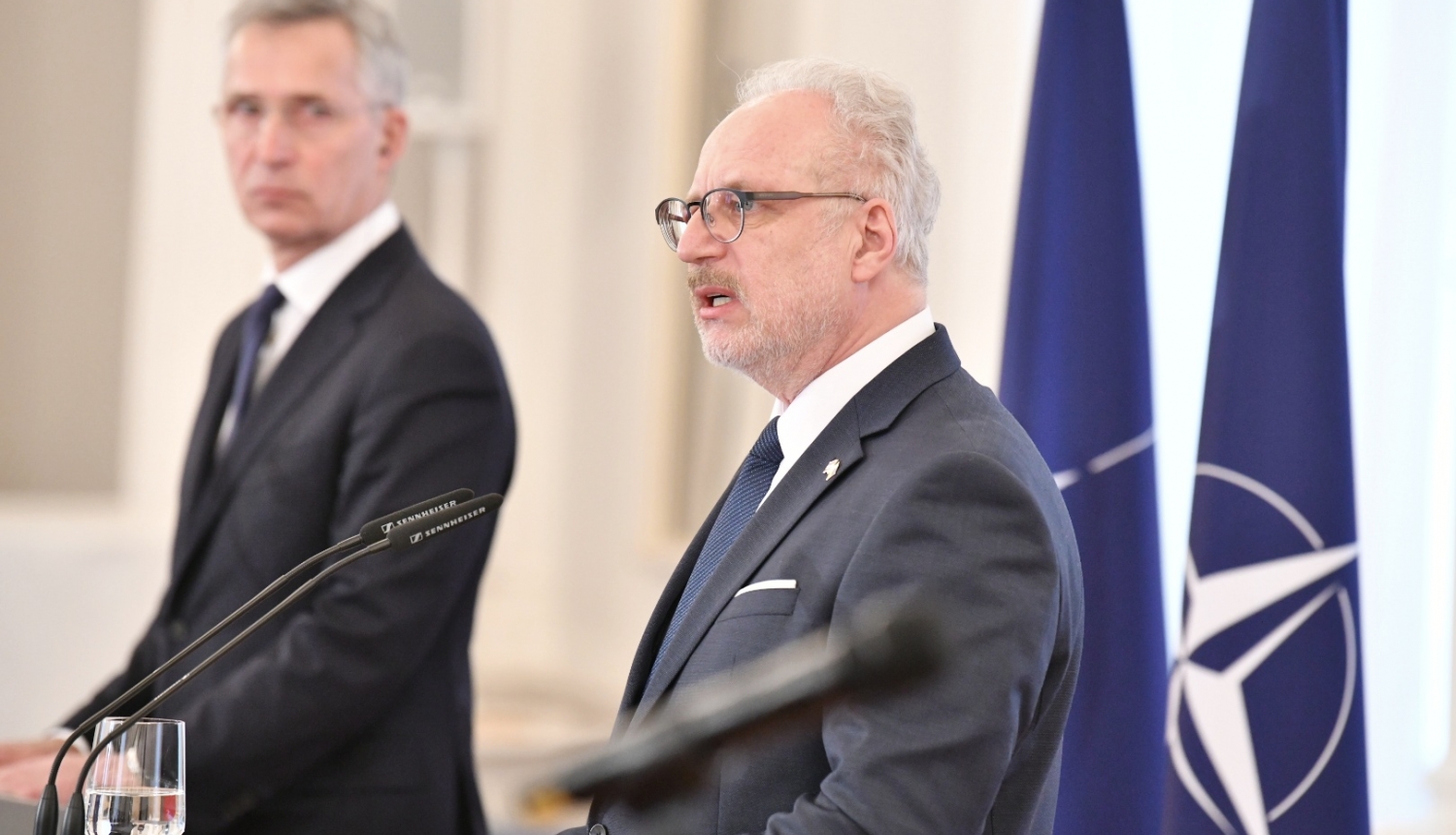Secretary General and I just had an in-depth conversation about how the war waged by Russia in Ukraine has influenced security in the Baltic region and NATO’s eastern flank as a whole.
NATO member states stand in solidarity with each other as more troops are deployed to Latvia in scope of the NATO enhanced Forward Presence Battle Group Latvia. And Latvia has also decided to increase its defence spending from more than 2% of GDP to 2.5% in the next three years. Allies have shown that Article 5 of NATO is indeed sacrosanct, as US President Joe Biden has reiterated on a number of occasions. We are a defence organisation. If one of its members is attacked, the other members of the Alliance will rush to defend it using the superior assets that NATO as the most powerful military alliance in the world holds.
Meanwhile, Ukraine needs all the help that we can give it: military, financial and humanitarian. Russian attack on Ukraine is an attack on the West as a whole, on democracies, our values, our rules-based international order. When it comes to our response, Secretary General and I discussed all alternatives, including the ones that have not been activated yet.
Attacks coming from Russia take other forms too. We have to be ready to respond to hybrid attacks that Russia has been implementing for a couple years now, attacking our information landscape and distorting history through misinformation. NATO Strategic Communications Centre of Excellence based in Riga is an important tool for countering lies spread by Russia. As I underlined to Secretary General, it is important for us to work together to ensure that people in Russia have access to unbiased, reliable information about the aggression of Putin’s regime against Ukraine.
We also discussed the upcoming NATO Summit in Madrid and the new Strategic Concept of NATO, which will be approved in Madrid. The new Strategic Concept must reflect the new reality: Russia is the aggressor country.





